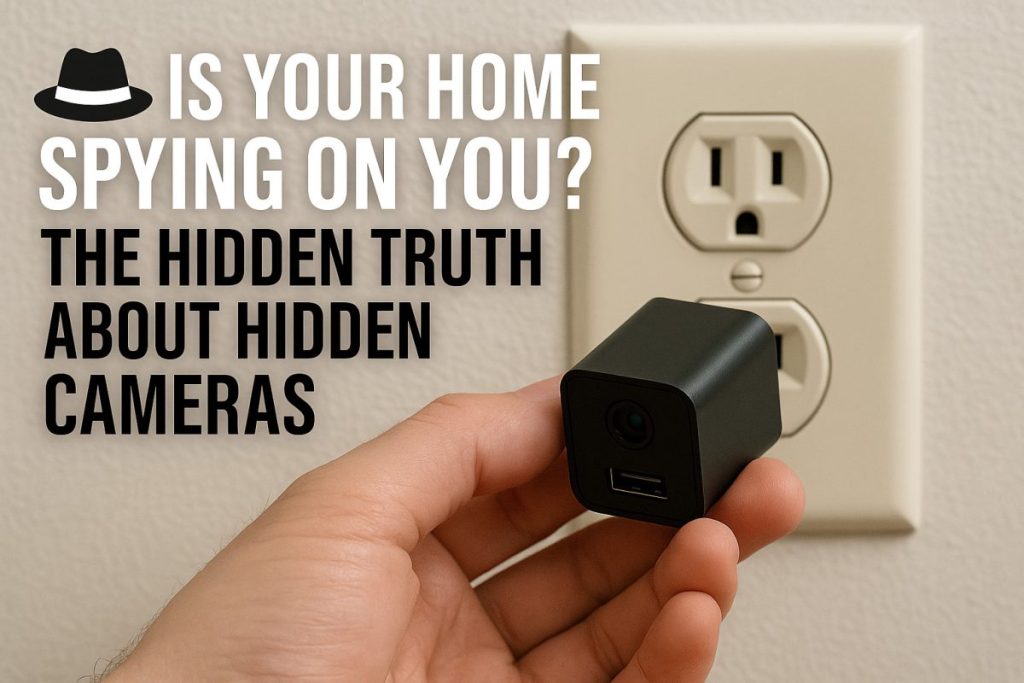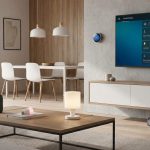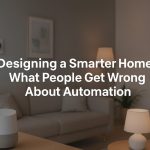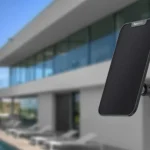Hidden Cameras in Smart Homes – Smart homes offer comfort, efficiency, and peace of mind — but could they also be watching you? Hidden cameras, once the stuff of spy movies, are now everyday items in the Internet of Things (IoT) world. From keeping homes secure to raising serious privacy concerns, these tiny devices are more powerful and prevalent than ever before.
In this article, we’ll explore how hidden cameras work, where they’re commonly placed, their legal implications, and most importantly — how to detect and protect yourself against unwanted surveillance.
What Are Hidden Cameras in Smart Homes?
Hidden cameras are tiny surveillance devices designed to blend into the background of your home. Unlike traditional security cameras that are clearly visible, these are often disguised as everyday objects — think:
- Smoke detectors
- Alarm clocks
- Phone chargers
- Wall outlets
- Even decorative items
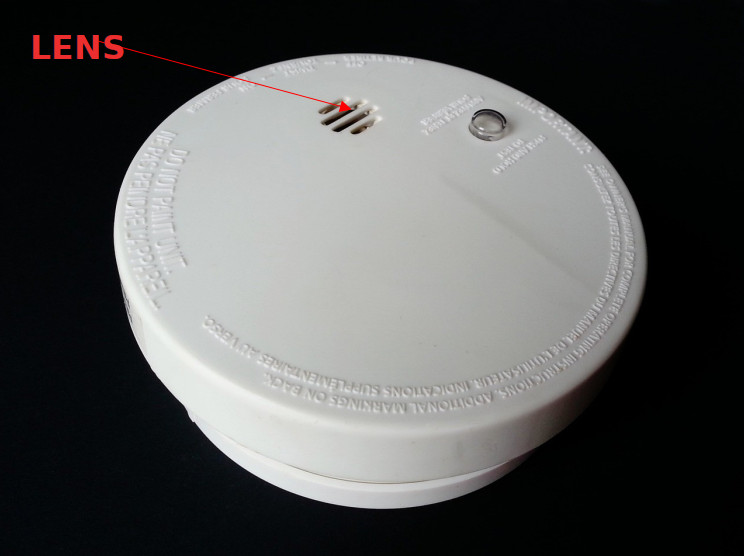
These cameras can be connected to your home’s Wi-Fi network, allowing real-time monitoring via smartphone apps — a standard IoT functionality.
Why Are People Using Hidden Cameras?
There are several legitimate reasons why hidden cameras are being used in smart homes:
✔️ Home Security
They allow homeowners to monitor activity without alerting potential intruders.
✔️ Monitoring Children or Elderly
Nanny cams and elderly monitoring systems help ensure the safety of loved ones.
✔️ Evidence Collection
Some use them discreetly to collect evidence of theft, abuse, or suspicious activity.
However, with great power comes great potential for misuse…
When Hidden Cameras Cross the Line
While hidden cameras may be useful, they can quickly turn into a privacy nightmare. For example:
- Landlords secretly recording tenants
- Airbnb hosts hiding cameras in rentals
- House guests snooping on others
- Domestic partners using them to spy
In many cases, this kind of surveillance is illegal and can result in criminal charges or lawsuits.
How to Detect Hidden Cameras in Your Smart Home
Worried about hidden surveillance? Here are a few tips to uncover unwanted eyes:
🔦 1. Use the Flashlight Test
Shine a flashlight around suspicious objects. Camera lenses often reflect light, revealing their location.
📱 2. Use a Hidden Camera Detector App
Several smartphone apps use infrared or network scanning to help you locate IoT devices with cameras.
📡 3. Scan the Network
Use your router or a tool like Fing to identify unknown devices connected to your home Wi-Fi.
👂 4. Listen for Buzzing
Some older hidden cameras emit faint noises when in operation.
How to Protect Yourself and Your Privacy
If you suspect or discover a hidden camera, take the following steps:
- Disable or unplug the device if it’s on your property.
- Check local laws before removing a device in a shared or rented space.
- Secure your Wi-Fi with strong passwords and monitor for new device connections.
- Cover or disable unused smart devices that may have built-in cameras or microphones.
- Educate household members about privacy best practices.
Are Hidden Cameras Legal?
This depends on where you live. Generally:
- Recording video in public or common areas (without audio) is legal.
- Recording audio or in private areas (like bedrooms or bathrooms) without consent is usually illegal.
Always check your country’s or region’s specific privacy laws before installing or reacting to hidden cameras.
Final Thought
As smart homes become more connected, privacy becomes a new form of luxury. Hidden cameras in the IoT space are not inherently bad — it’s how and why they’re used that matters. By staying informed and vigilant, you can enjoy the benefits of a smarter home while keeping your personal space truly personal.
📌 FAQ – Hidden Cameras in Smart Homes
Q: Can someone hack into a hidden camera in my house?
Yes, poorly secured hidden cameras can be vulnerable to hackers. Always use strong passwords and update firmware regularly.
Q: Is it legal to install hidden cameras in my own home?
Generally yes, especially if you own the property. But you may need to notify visitors depending on local laws.
Q: What’s the best hidden camera detector?
Apps like Fing (for network scanning) or RF detectors can be effective. However, a thorough visual inspection remains key.
Q: Are all hidden cameras part of the IoT?
Not all, but many modern hidden cameras are Wi-Fi enabled, making them part of the IoT ecosystem.
Q: Should I be worried about Airbnb or hotel surveillance?
While rare, it’s always smart to check smoke detectors, alarm clocks, and chargers for suspicious lenses when staying in rentals.
The Smart Home Setup Starter Guide for Beginners
- IoT for Beginners: The Complete Smart Home Starter Guide (2025 Edition)
 Smart home devices are no longer sci‑fi toys for tech geeks – they are affordable, easy to install, and can genuinely make everyday life more convenient, efficient, and secure. This guide walks you through the essentials of getting started with IoT and building a smart home in 2025 without getting overwhelmed by buzzwords and acronyms.…
Smart home devices are no longer sci‑fi toys for tech geeks – they are affordable, easy to install, and can genuinely make everyday life more convenient, efficient, and secure. This guide walks you through the essentials of getting started with IoT and building a smart home in 2025 without getting overwhelmed by buzzwords and acronyms.… - Designing a Smarter Home in 2026: What People Get Wrong About Automation
 Smart homes were once science fiction, but today they’re a reality in millions of households. With voice assistants, smart plugs, and automated lighting systems, it’s easy to assume home automation is simply a matter of plugging in a few devices. Yet, many homeowners quickly discover that “smart” doesn’t always mean simple. In this article, we’ll…
Smart homes were once science fiction, but today they’re a reality in millions of households. With voice assistants, smart plugs, and automated lighting systems, it’s easy to assume home automation is simply a matter of plugging in a few devices. Yet, many homeowners quickly discover that “smart” doesn’t always mean simple. In this article, we’ll… - Automated Online Trading: How IoT is Redefining Financial Markets
 Introduction automated online trading In a world where milliseconds can decide millions, the fusion of Internet of Things (IoT) technology and automated online trading is reshaping global finance. What once relied solely on human judgment now increasingly depends on connected machines, real-time data, and predictive algorithms. From weather sensors influencing agricultural trades to smart logistics…
Introduction automated online trading In a world where milliseconds can decide millions, the fusion of Internet of Things (IoT) technology and automated online trading is reshaping global finance. What once relied solely on human judgment now increasingly depends on connected machines, real-time data, and predictive algorithms. From weather sensors influencing agricultural trades to smart logistics… - The Role of Linux in IoT: Powering the Connected World
 The Internet of Things (IoT) is everywhere—from smart homes and wearable devices to industrial automation and self-driving cars. Behind the scenes, one operating system plays a surprisingly dominant role: Linux. Known for its stability, flexibility, and open-source nature, Linux has become the backbone of countless IoT devices and platforms. But what makes Linux so well-suited…
The Internet of Things (IoT) is everywhere—from smart homes and wearable devices to industrial automation and self-driving cars. Behind the scenes, one operating system plays a surprisingly dominant role: Linux. Known for its stability, flexibility, and open-source nature, Linux has become the backbone of countless IoT devices and platforms. But what makes Linux so well-suited… - The Smart Home Revolution in 2025: How IoT is Transforming Everyday Living
 In the past decade, the vision of a truly smart home has moved from futuristic fantasy to everyday reality. As we step into 2025, the Internet of Things (IoT) has matured into a robust ecosystem, connecting appliances, security systems, lighting, and even entertainment devices under one seamless digital roof. The result? Homes that are safer,…
In the past decade, the vision of a truly smart home has moved from futuristic fantasy to everyday reality. As we step into 2025, the Internet of Things (IoT) has matured into a robust ecosystem, connecting appliances, security systems, lighting, and even entertainment devices under one seamless digital roof. The result? Homes that are safer,…
